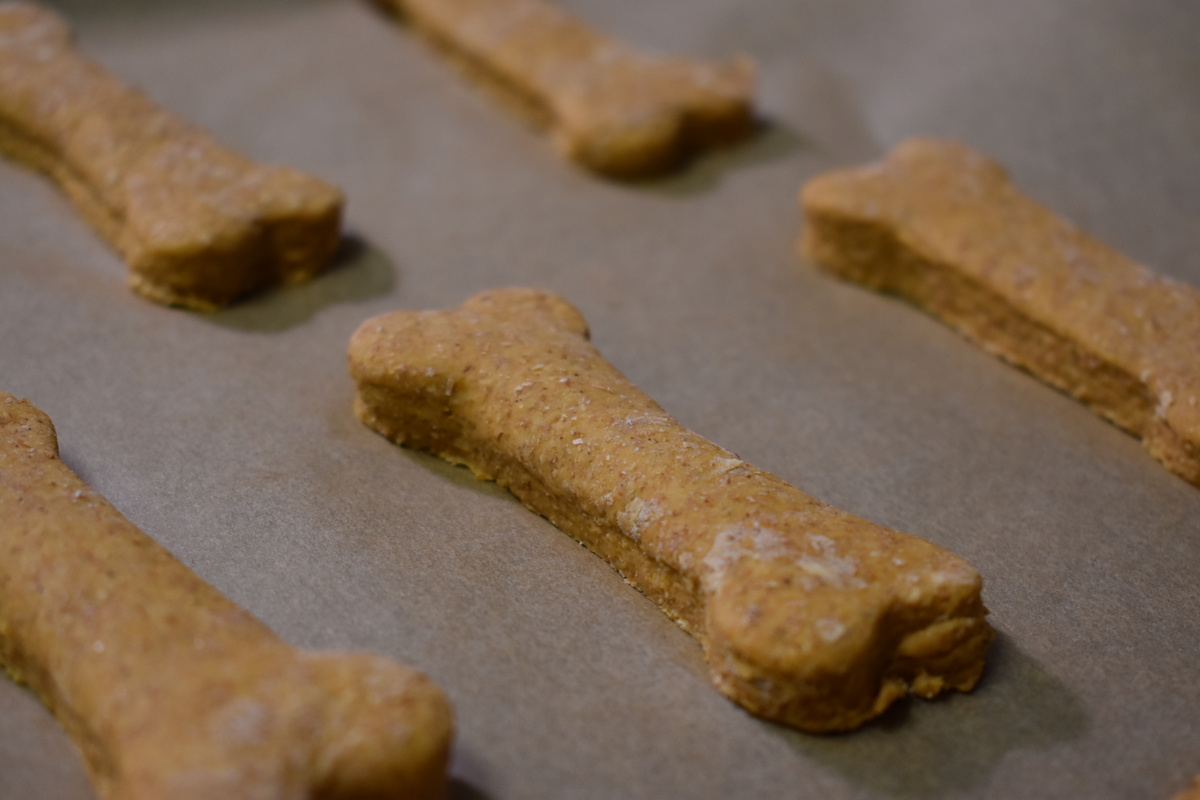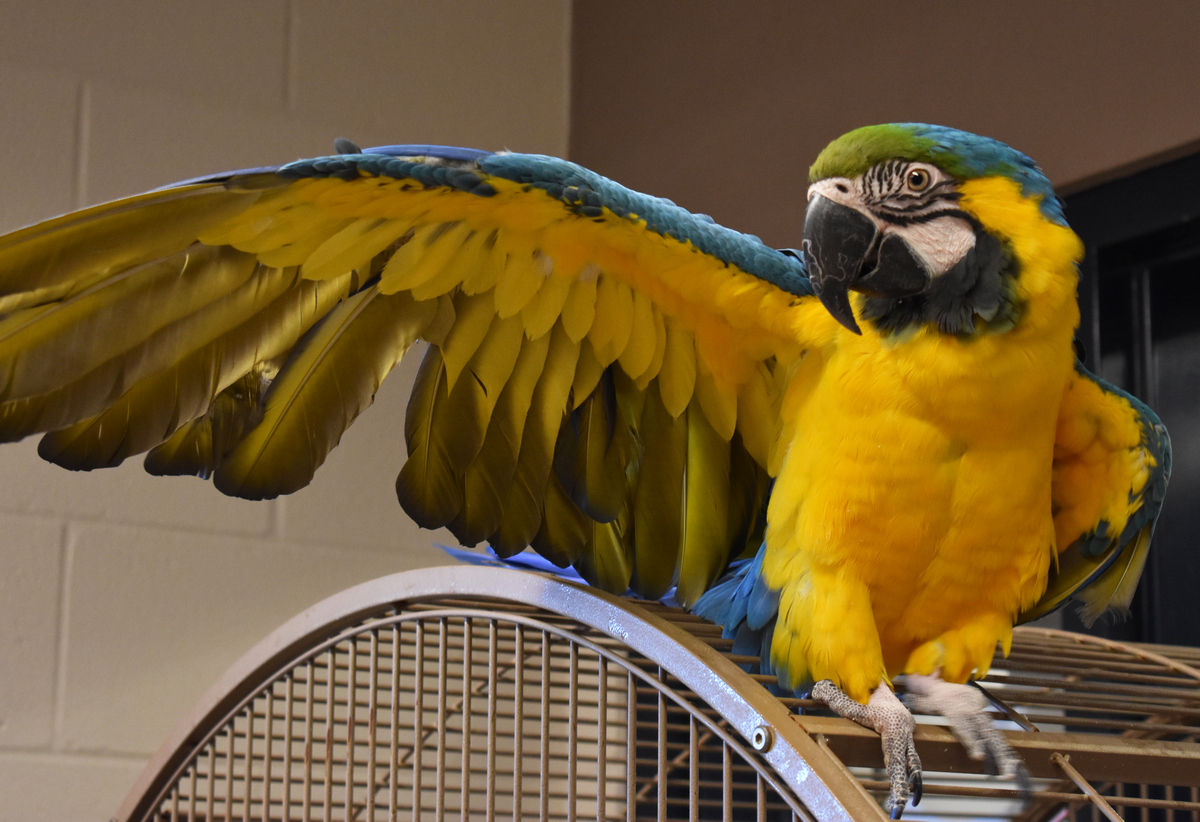
Often when large birds become available for adoption at Lollypop Farm, we get questions from the public about what it takes to own such a bird. Their beautiful plumes and playful personalities are enticing to seasoned bird owners and non-bird owners alike! However, we ask that adopters interested in large birds like macaws have prior large bird experience, and we’d like to share with you why that is.
Gulliver is a 1-year-old blue and gold macaw who is currently available for adoption at Lollypop Farm. He loves to dance, hates baths, and can never get enough attention, very much like a small child. Gulliver is happy to be handled, but has learned that if his handler isn’t entirely confident around him, he can resist going back into his cage. Like other large bird breeds, Gulliver is incredibly intelligent, always listening and learning and in need of frequent stimulation. “These large birds often have the intelligence of a human toddler,” says Lee Nearpass, Lollypop Farm’s Law Enforcement Dispatcher and experienced big bird owner. “They need frequent mental stimulation and attention.”
Gulliver and other large birds are complicated creatures, and require very specific care.
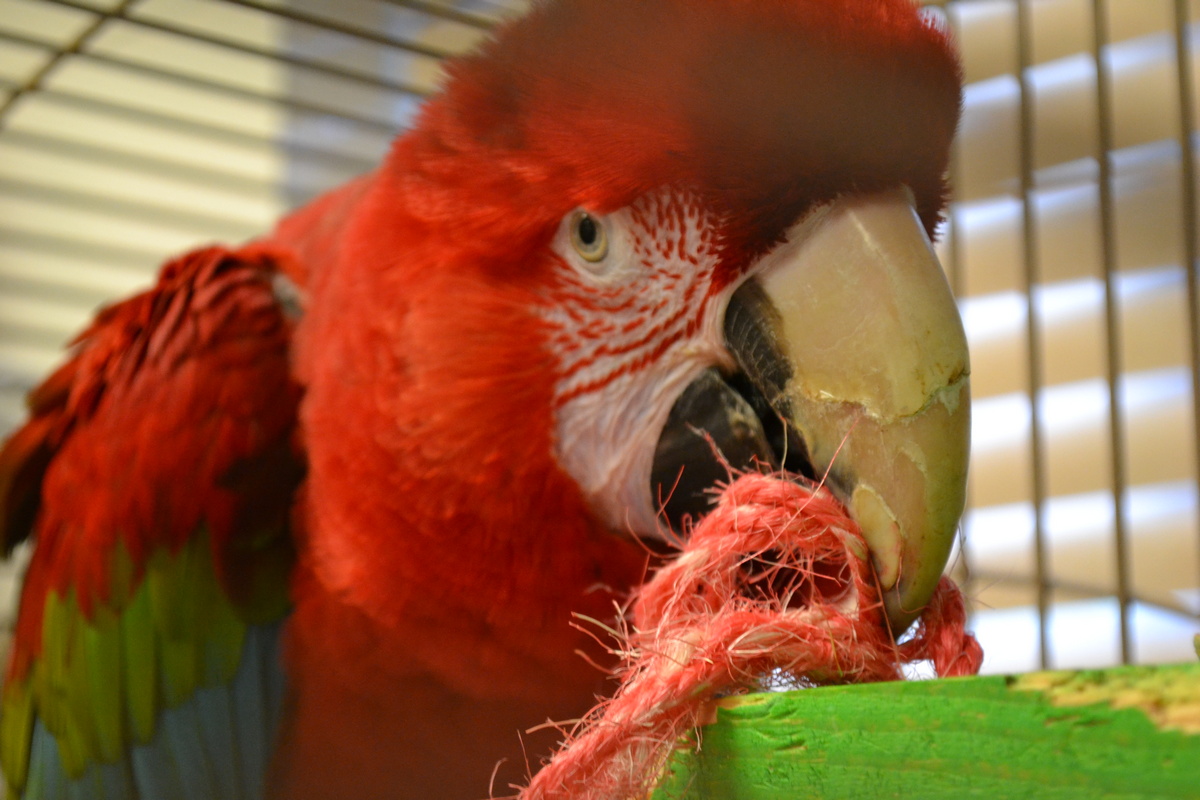
Environment and Enrichment
Macaws need large cages that give them space to move around; in addition to the time they need to spend exploring out of the cage (a recommended 4 hours a day). Inside of the cage, macaws enjoy a wide variety of toys and various items to keep them stimulated and active – chews, puzzle boxes, phone books to shred, and more.
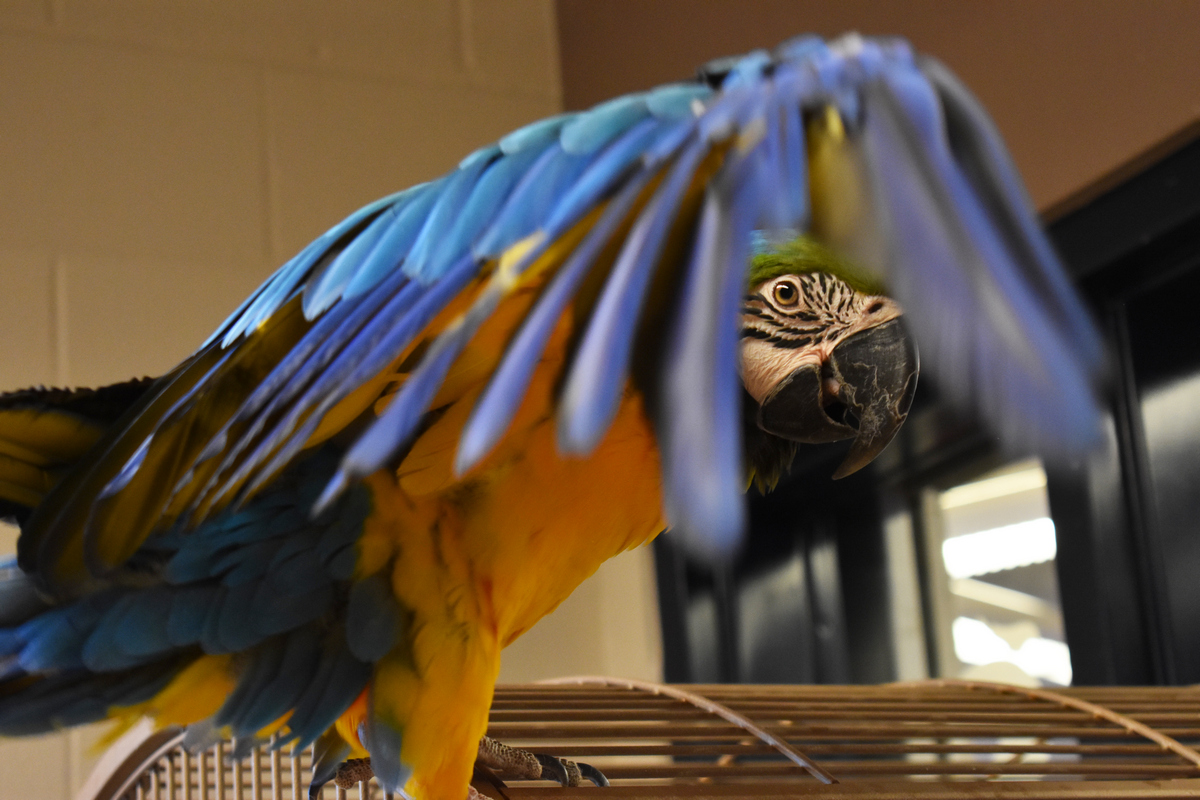
Diet
Macaws and other large birds often have a much more complex diet than you’d think! Birds like Gulliver need to eat a whole lot more than just seed. In fact, “feeding a large bird strictly seed can cut its lifespan almost in half,” said Lee. Macaws are actually omnivores, and while they do require some seed formula, their diet is supplemented with fruits, vegetables, nuts, even meat. “Dinner time can be an opportunity to socialize,” Lee explained. “Giving them a taste of what you’re eating is a great way to bond with your bird.”
Lifespan
A bird like Gulliver could live to be 100 years old, meaning that he is almost more than a lifetime commitment! Sometimes macaws are passed from generation to generation within a family due to their incredibly long lifespan. The time necessary to raise a macaw is certainly something that must be taken into account when considering welcoming such a bird into the family.
Adopting a bird
After learning about what goes into caring for a macaw, some potential adopters may feel that a bird such as Gulliver is just a little too much work. If you’re looking to welcome a feathered family member, but just not sure that you’re ready for a commitment as big (literally!) as a macaw, you might consider adopting a cockatiel! These smaller-sized birds are beautiful, gentle, and oh-so chatty.
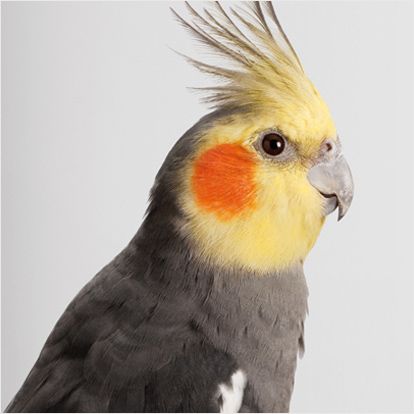
For an experienced large bird owner, Gulliver the blue and gold macaw would be a wonderful, lively, and highly intelligent companion.
Interested in learning more about Gulliver? Send us an email at birds@lollypop.org!
Meet our adoptable birds: www.lollypop.org/adopt/adoptable-pets

